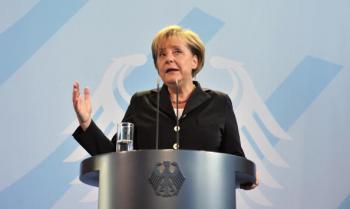NEW YORK—New York Public Advocate Bill DeBlasio expressed his disagreement with the recent plans of the city administration to close or share school buildings at a rally on Tuesday at City Hall.
The New York Coalition for Educational Justice (CEJ) called out for a temporary moratorium on collocating schools until an independent analysis can be done.
The CEJ declared that it is not against charter schools in general, while they object to charter schools “expanding at the cost of existing schools that continue to serve the lowest-income students, English language learners, and students in special education.”
The CEJ stated that “public hearings and news reports have surfaced numerous cases of inaccurate or incomplete information” in the Educational Impact Statements the New York City Department of Education (DOE) is mandated to provide about the impact of these collocations on existing schools.
Underlining their request for a temporary moratorium, the CEJ provided an independent analysis on collocations on a sample of schools.
The analysis revealed that in the majority of the eight sample collocations, the expansion of charter schools leads to a concentration of lowest-income and English-learning students in the existing schools. At the same time, the space available to the existing schools has been significantly limited by the charter schools. The analysis also showed that classrooms that were considered vacant if they were not used for full classroom instruction for three to four periods a day, even if the classrooms were used for small group teaching.
Mona Davids, president of the New York Charter Parents Association (NYCPA), further questioned the way decisions on collocating schools are made. In an interview with the Epoch Times, she raised the question of the Panel for Education Policy (PEP) being a proportionate representation of the parents whose children are being effected by their decisions, as well as wondering if the current process of these decisions is “100 percent democratic.”
The New York Coalition for Educational Justice (CEJ) called out for a temporary moratorium on collocating schools until an independent analysis can be done.
The CEJ declared that it is not against charter schools in general, while they object to charter schools “expanding at the cost of existing schools that continue to serve the lowest-income students, English language learners, and students in special education.”
The CEJ stated that “public hearings and news reports have surfaced numerous cases of inaccurate or incomplete information” in the Educational Impact Statements the New York City Department of Education (DOE) is mandated to provide about the impact of these collocations on existing schools.
Underlining their request for a temporary moratorium, the CEJ provided an independent analysis on collocations on a sample of schools.
The analysis revealed that in the majority of the eight sample collocations, the expansion of charter schools leads to a concentration of lowest-income and English-learning students in the existing schools. At the same time, the space available to the existing schools has been significantly limited by the charter schools. The analysis also showed that classrooms that were considered vacant if they were not used for full classroom instruction for three to four periods a day, even if the classrooms were used for small group teaching.
Mona Davids, president of the New York Charter Parents Association (NYCPA), further questioned the way decisions on collocating schools are made. In an interview with the Epoch Times, she raised the question of the Panel for Education Policy (PEP) being a proportionate representation of the parents whose children are being effected by their decisions, as well as wondering if the current process of these decisions is “100 percent democratic.”



